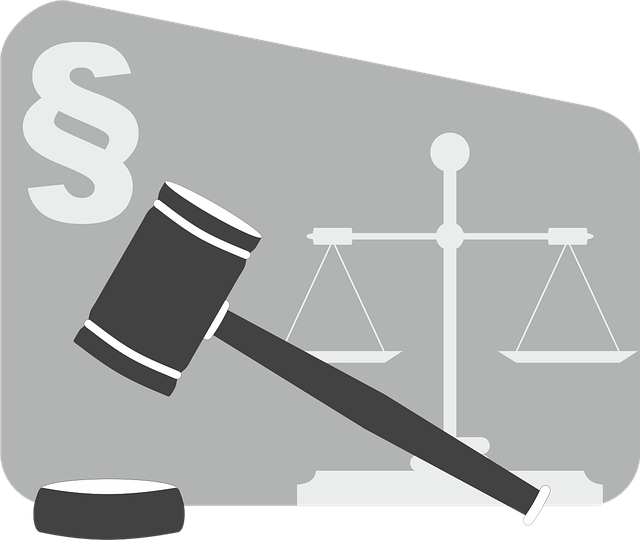Understanding consumer rights in healthcare is crucial for patients and providers alike. In the US, HIPAA safeguards privacy and ensures quality care. Common Defenses in Consumer Protection Litigation stem from breaches of these rights, like inadequate informed consent or unfair billing practices. Effective disclosure, consent, and regulatory compliance are key to mitigating risks and protecting both providers and patients from unfounded claims, particularly through robust internal policies and transparent communication channels.
In the intricate landscape of healthcare, legal issues are a complex web that both consumers and providers must navigate carefully. This article explores critical aspects of healthcare law, focusing on consumer rights, common misrepresentations, disclosure practices, regulatory compliance, and effective communication. Understanding these elements is essential for mitigating risks and employing robust defenses in consumer protection litigation. Discover practical insights into the strategies for safeguarding patient interests and ensuring legal integrity within the healthcare sector.
- Understanding Consumer Rights in Healthcare
- Common Misrepresentations Leading to Lawsuits
- Safeguarding Disclosure and Consent Practices
- Regulatory Compliance: A Cornerstone of Defense
- Effective Communication: Mitigating Legal Risks
Understanding Consumer Rights in Healthcare

Understanding Consumer Rights in Healthcare is paramount as patients navigate complex systems. In the U.S., the Health Insurance Portability and Accountability Act (HIPAA) provides significant safeguards, ensuring privacy and securing medical records. Patients have the right to access their health information, understand billing practices, and receive quality care without discrimination.
Common Defenses in Consumer Protection Litigation often revolve around breaches of these rights. Issues like inadequate informed consent, medical negligence, and unfair billing practices can lead to legal disputes. For his clients, whether corporate or individual, across the country, understanding these defenses is crucial when addressing healthcare legal issues.
Common Misrepresentations Leading to Lawsuits

In healthcare, common misrepresentations that can lead to lawsuits often involve false promises or misleading information about services provided. These may include guarantees of specific outcomes, concealment of known risks associated with treatments, or exaggerated claims about the efficacy of certain procedures. Many disputes arise from these misrepresentations, particularly when they result in adverse effects on patients’ health or financial burdens. Consumer protection litigation against healthcare providers and facilities has become increasingly common due to these issues.
Addressing these concerns is crucial for maintaining trust between healthcare professionals and their corporate and individual clients. Understanding the nuances of consumer protection laws and developing robust internal practices can serve as effective Common Defenses in Consumer Protection Litigation. This proactive approach ensures that all stages of the investigative and enforcement process are navigated seamlessly across the country, protecting both providers and patients from unfounded legal claims.
Safeguarding Disclosure and Consent Practices

In the realm of healthcare, disclosure and consent practices are paramount to safeguarding patient rights and privacy. Healthcare providers must ensure that they obtain informed consent from patients before any medical procedure or treatment, clearly explaining the risks and benefits involved. This process not only ensures patient autonomy but also serves as a defensive measure against potential legal disputes. Common defenses in consumer protection litigation often revolve around demonstrating good faith efforts to comply with disclosure regulations, such as HIPAA (Health Insurance Portability and Accountability Act), which protects sensitive healthcare information.
Winning challenging defense verdicts in these cases requires a thorough understanding of all stages of the investigative and enforcement process, from initial patient intake to record-keeping practices. Both corporate and individual clients can benefit from robust internal policies that promote transparent disclosure and obtain valid consent. This includes utilizing clear, non-technical language in patient agreements and encouraging open communication between healthcare professionals and patients, ensuring that any concerns or questions are promptly addressed.
Regulatory Compliance: A Cornerstone of Defense

Regulatory compliance is a cornerstone of defense in healthcare legal issues, particularly in consumer protection litigation. Healthcare organizations must adhere to a complex web of federal and state regulations designed to protect patients and ensure ethical practices. Common defenses in consumer protection litigation often center around claims that the organization complied with all relevant laws and regulations, demonstrating due diligence and good faith efforts to serve their corporate and individual clients.
By prioritizing regulatory compliance, healthcare providers can fortify their defenses against lawsuits stemming from allegations of non-compliance or negligence. This includes meticulously documenting procedures, training staff on regulatory updates, and maintaining comprehensive records that prove adherence to standards across the country. Such proactive measures not only bolster defenses but also instill trust in philanthropic and political communities, demonstrating a commitment to ethical and safe patient care.
Effective Communication: Mitigating Legal Risks

Effective communication is a powerful tool for healthcare providers to mitigate legal risks associated with consumer protection litigation. In an industry where accurate and clear information exchange is paramount, establishing robust communication channels can significantly reduce potential misunderstandings that often form the basis of legal disputes. By implementing systematic protocols for patient intake, treatment updates, and consent processes, medical facilities can ensure compliance with regulations like HIPAA (Health Insurance Portability and Accountability Act). This, in turn, helps protect against common defenses in consumer protection litigation, such as negligence or breach of privacy.
Moreover, fostering open dialogue between staff, patients, and their families creates an environment where concerns are promptly addressed. Regular training on communication best practices can help healthcare professionals navigate complex conversations sensitively and effectively, reducing the risk of miscommunication that could lead to legal repercussions. This proactive approach ensures that the respective business interests of healthcare providers are protected while fostering trust among patients across the country, a crucial factor in ensuring jury trials remain fair and just.
In navigating healthcare legal issues, understanding consumer rights, safeguarding disclosure practices, and ensuring regulatory compliance are essential components of risk mitigation. By recognizing common misrepresentations that lead to lawsuits and fostering effective communication, healthcare providers can fortify defenses in consumer protection litigation. These strategies not only protect patients but also contribute to a more transparent and trustworthy healthcare environment.






